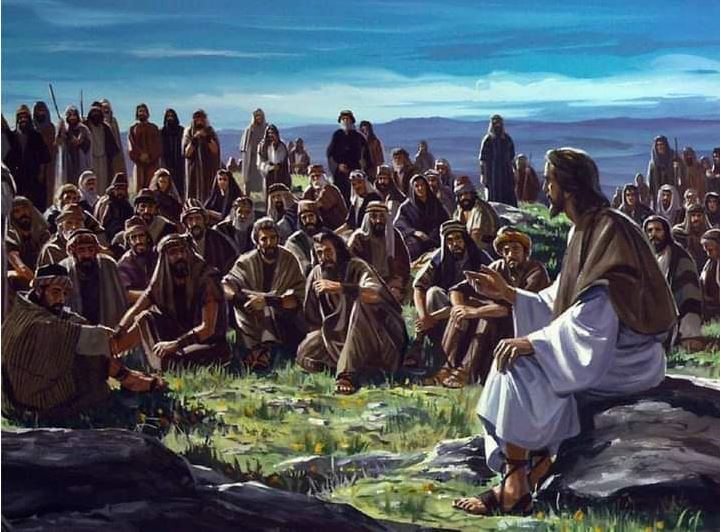1. Then Pilate, returning to enter the palace, and having made Jesus come to him, asked him, “Are you the king of the Jews?” Jesus responded to him, “My kingdom is not of this world. If my kingdom were of this world, my people would have fought to prevent my falling into the hands of the Jews. But my kingdom is not here.”
Pilate said to him, “Then you are a king?” Jesus replied, “You have said it; I am a king. I was not born, nor did I come into this world except to bear witness to the truth. Whoever belongs to the truth hears my voice.” (Jn. 18:33, 36, 37)
2. With these words, Jesus clearly refers to the future life, which he presents, in every circumstance, as the end where human kind will end up and as the object of people’s principal concerns while on earth. All of his maxims refer to this great principle. Indeed, without the future life, the greater part of his moral precepts would have no reason for being. That is why those who do not believe in the future life, imagining that he is speaking only of the present life, either do not understand them or find them puerile.
This doctrine, therefore, can be considered as the focal point of Christ’s teaching and it is placed toward the beginning of this book because it must be the goal of all persons. Only this doctrine can justify the anomalies of earthly life and harmonize them with the justice of God.
3. The Jews had only very imprecise ideas regarding the future life. They believed in angels, whom they regarded as the privileged beings of creation, but they did not know that human beings could someday become angels and share in their bliss. According to them, observing God’s laws was rewarded with earthly possessions, the supremacy of their nation and victory over their enemies. Public calamities and defeats were punishment for their disobedience. Moses could not have said more than he did to an uneducated people comprised mostly of shepherds, and who needed to be touched, before anything else, by the things of this world. Later, Jesus came to reveal to them that there is another world, where God’s justice follows its course. It is this world that he promises to those who observe God’s commandments and where the good ones will find their recompense. That world is his kingdom; it is there that he is to be found in all his glory and to where he will return upon leaving the earth.
However, adapting his teaching to the state of people at that time, Jesus did not believe he should give them complete enlightenment, which would dazzle them without edifying them, for they would not comprehend it. Thus, he limited himself to presenting the future life in principle, as a law of nature from which no one could escape. Therefore, every Christian strongly believes in the future life, but the idea that many hold about it is vague and incomplete, and therefore erroneous on various points. For a great many, it is only a belief without absolute certainty; hence doubt and even disbelief. Spiritism has come to complete, on this point as well as many others, the teaching of Christ now that humans have matured enough to comprehend the truth. With Spiritism, the future life is no longer a simple article of faith, a hypothesis. It is a material reality demonstrated by the facts; eye-witnesses have come to describe this reality in all its phases and in all its peripeties in such a way that not only is doubt no longer possible, but the most commonplace intelligence can depict it in its true appearance just as one could depict a country about which one had read a detailed description. And this description of the future life is so circumstantiated, the conditions of the happy or unhappy existence of those who are there are so logical, that one must state in spite of oneself that it could not be otherwise, and that the true justice of God is contained therein.
